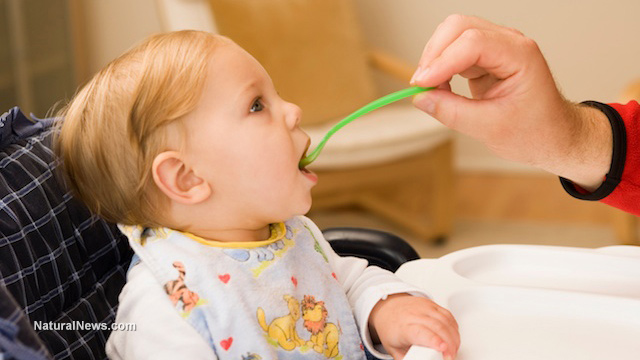Parents often choose rice meals when it comes time to begin feeding their babies solid foods. In addition, rice is very much a staple ingredient in many baby and toddler foods, because it is cheap and plentiful.
But multiple studies have found that foods containing rice also have sometimes alarming levels of arsenic, National Public Radio reported. As a matter of fact, a new study has confirmed previous studies which found that babies who are fed rice cereals and other rice-based foods and snacks tend to have higher concentrations of arsenic in their urine, when compared to babies who are not fed rice.
According to NPR that the most recent study was just published in JAMA Pediatrics.
“The highest arsenic concentrations were among those who consumed infant rice cereal,” researcher Margaret Karagas, an epidemiologist at Dartmouth’s Geisel School of Medicine, told NPR. “Among those [babies] who ate rice snacks, levels were about double [that of] non-rice eaters.”
‘We were surprised…’
Researchers based their findings on the New Hampshire Birth Cohort Study at Dartmouth University, a project begun in 2009 at the institution’s Geisel School of Medicine.
The just-released study involved analyzing the eating habits of some 750 infants and mothers who were enrolled in the study at the time. Currently, the study has expanded to 1,200 women and 1,200 children from New Hampshire and Vermont, Dartmouth University reported.
“We knew rice cereal was a common first food, but we didn’t really know how common it was or what age it was introduced,” Karagas said, noting that the study found that by age 1, nearly 80 percent of babies had been given some form of rice cereal, which usually began at between 4 and 6 months.
“We were surprised by the number of infants consuming rice products,” said Karagas.
NPR reported that the potential health effects of consuming arsenic regularly in infant rice cereals, and other rice-based foods that also contain traces of arsenic, are “unclear.” But as noted by Mike Adams, the Health Ranger and director of the Consumer Wellness Center’s Forensic Food Lab, arsenic is considered extremely toxic by the Environmental Protection Agency, and has been linked to cancer when found in water.
That said, the authors of the most current arsenic-rice study wrote that “emerging epidemiologic evidence suggests that [arsenic] exposure in utero and during early life may be associated with adverse health effects” on the development of the brain and the body’s immune system.
On April 1, the Food and Drug Administration took an action directed at inorganic arsenic, proposing a limit of 100 parts per billion in infant rice cereals:
Relative to body weight, rice intake for infants, primarily through infant rice cereal, is about three times greater than for adults. Moreover, national intake data show that people consume the most rice (relative to their weight) at approximately 8 months of age.
Stick with organic baby food
The cap proposed “is parallel to the level set by the European Commission (EC) for rice intended for the production of food for infants and young children,” the FDA said on its website.
“Our actions are driven by our duty to protect the public health and our careful analysis of the data and the emerging science,” said Susan Mayne, Ph.D., director of the FDA’s Center for Food Safety and Applied Nutrition. “The proposed limit is a prudent and achievable step to reduce exposure to arsenic among infants.”
The FDA pointed to separate research that ties exposure to inorganic arsenic earlier in life to decreased performance academically and in developmental testing.
NPR reported further:
The agency found that about half of the samples contained levels of inorganic arsenic that were higher than 100 ppb, but most exceeded the proposed limit only slightly.The FDA tested 76 samples of infant rice cereals from retail stores for concentrations of inorganic arsenic.
As for parental advice, the FDA reminds parents that rice need not be the only, or first, source of grain for babies. Other sources include wheat, oats and barley, the agency said. Of course, NaturalNews recommends only organic baby foods.



